Abstract
The study attempted to isolate some of the environmental conditions that controlled the self-destructive behavior of three severely retarded and psychotic children. In the extinction study subjects were placed in a room where they were allowed to hurt themselves, isolated from interpersonal contact. They eventually ceased to hurt themselves in that situation, the rate of self-destruction falling gradually over successive days. In the punishment study, subjects were administered painful electric shock contingent on the self-destructive behavior. (1) The self-destructive behavior was immediately suppressed. (2) The behavior recurred when shock was removed. (3) The suppression was selective, both across physical locales and interpersonal situations, as a function of the presence of shock. (4) Generalized effects on other, non-shock behaviors, appeared in a clinically desirable direction. Finally, a study was reported where self-destructive behavior increased when certain social attentions were given contingent upon that behavior.
Full text
PDF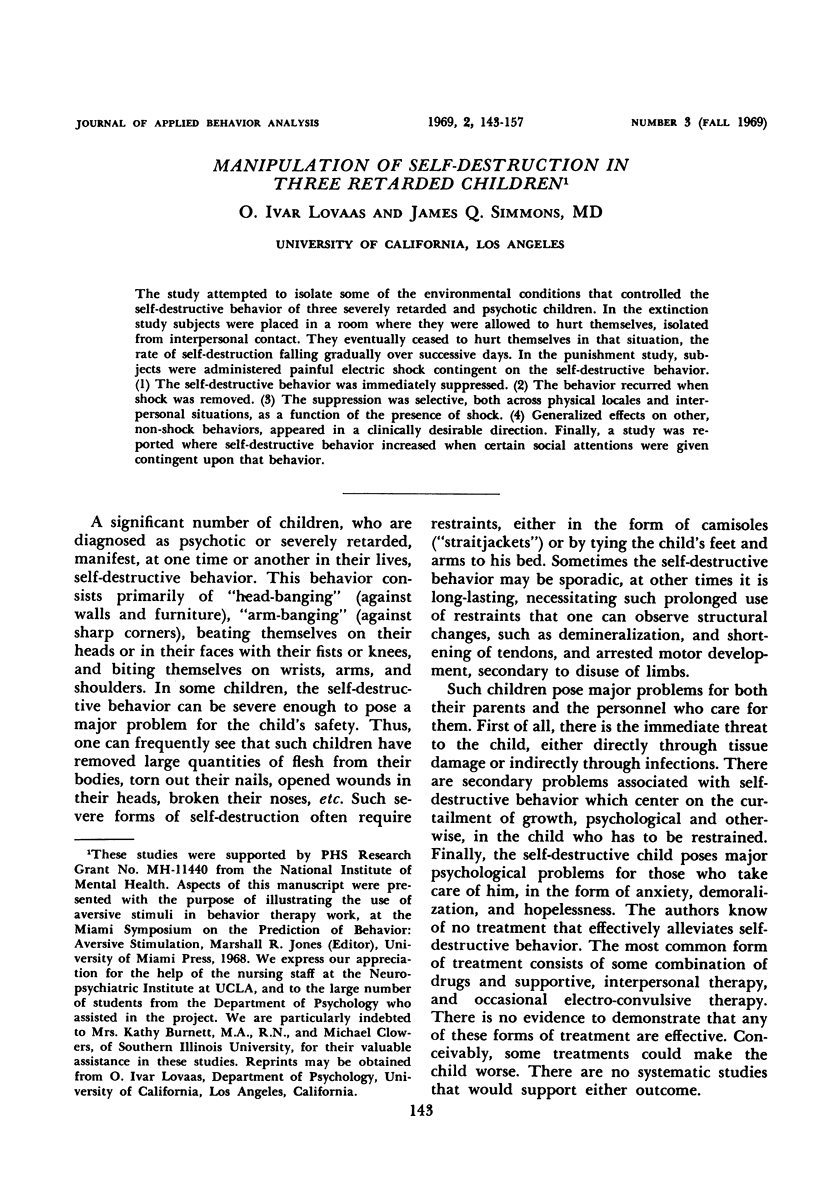
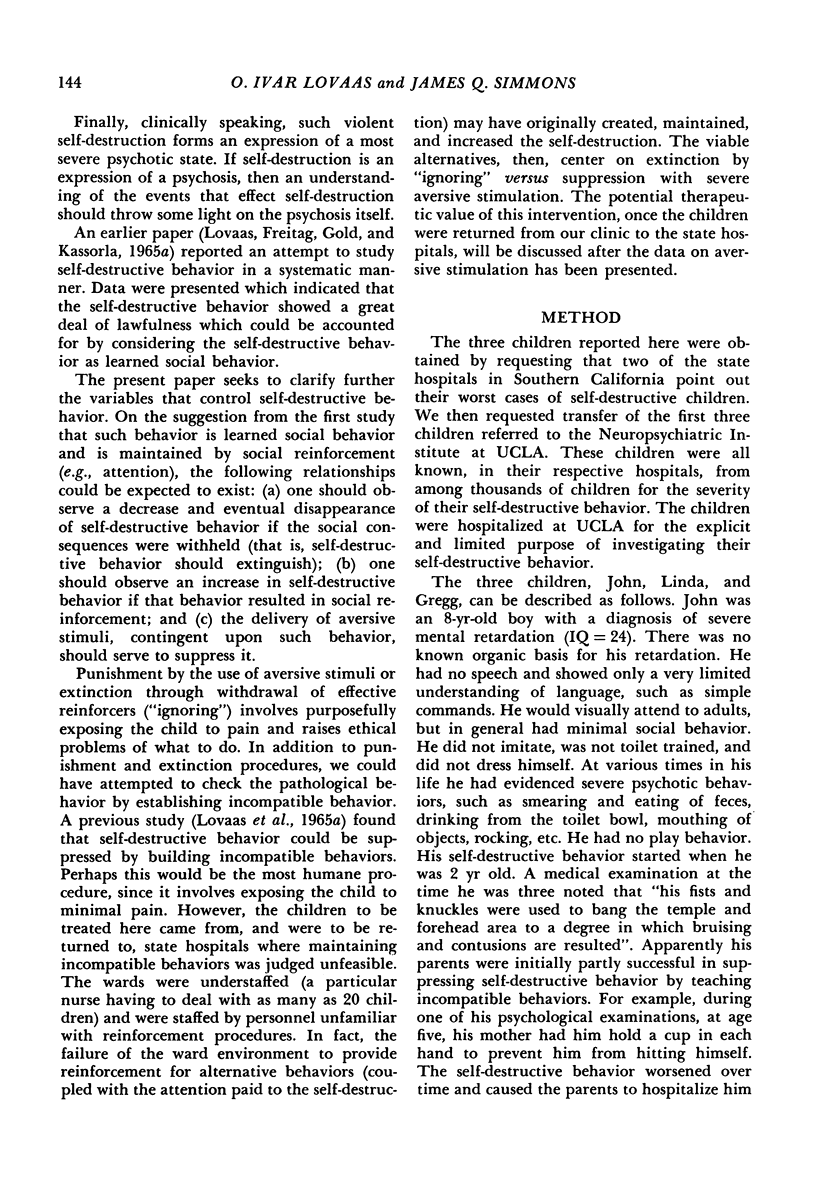
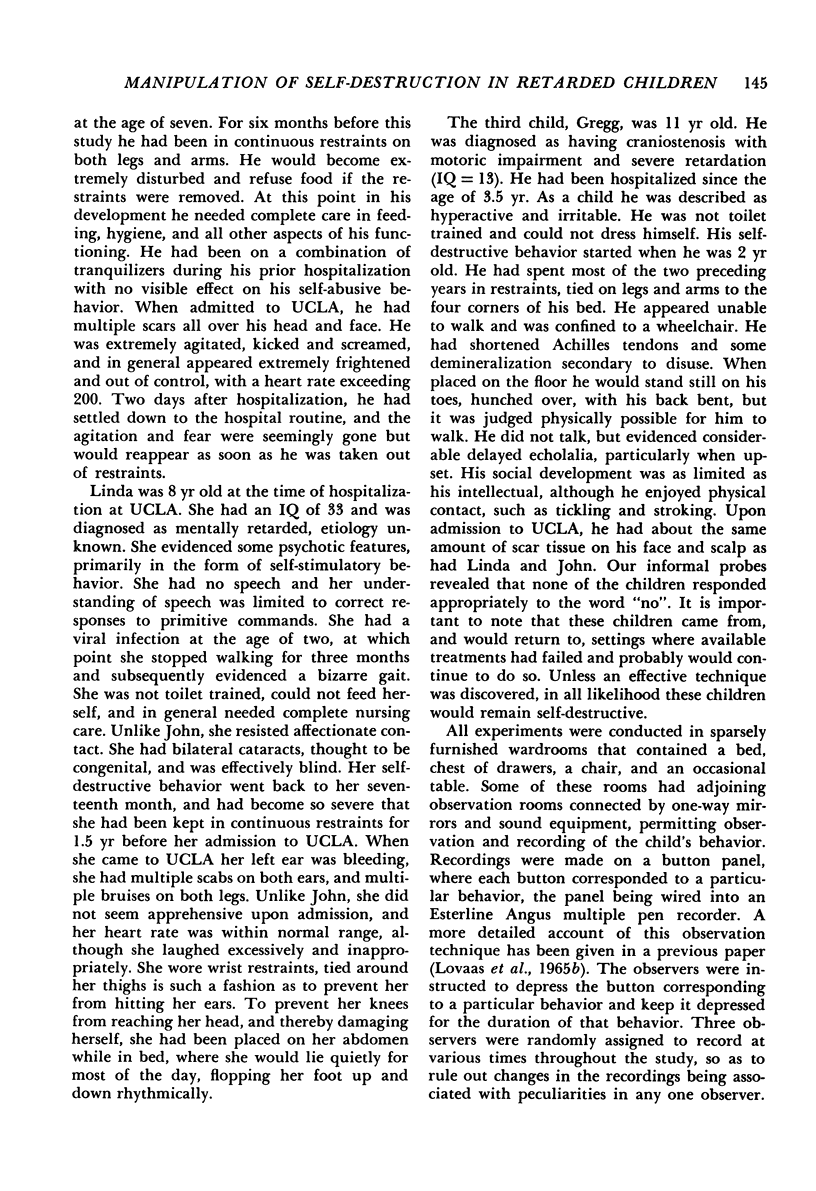
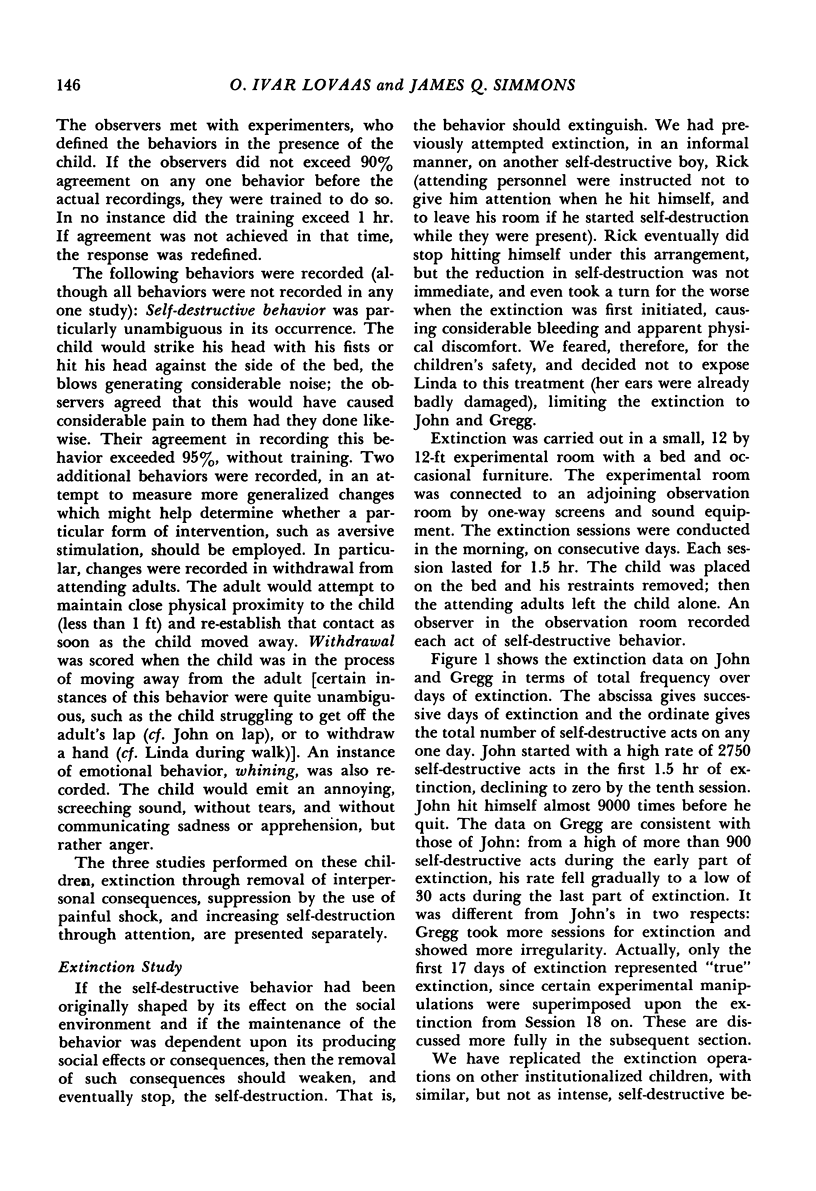
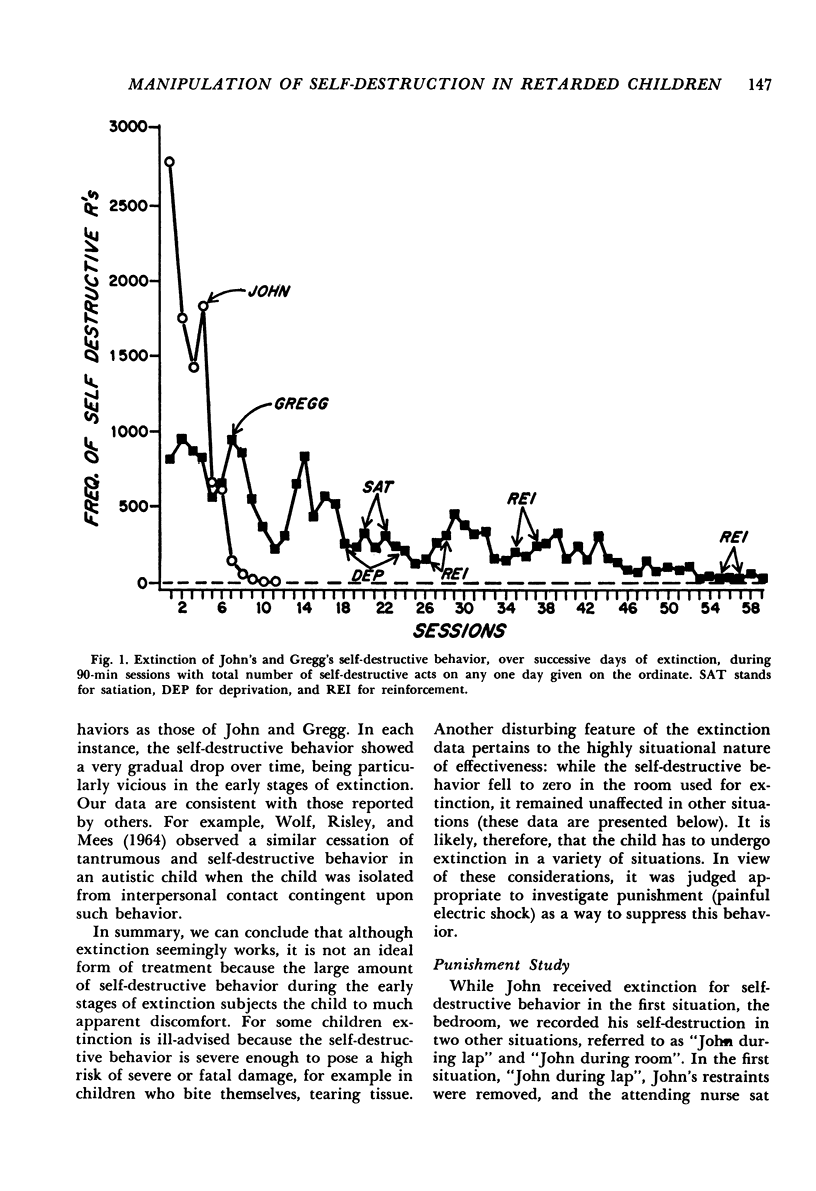
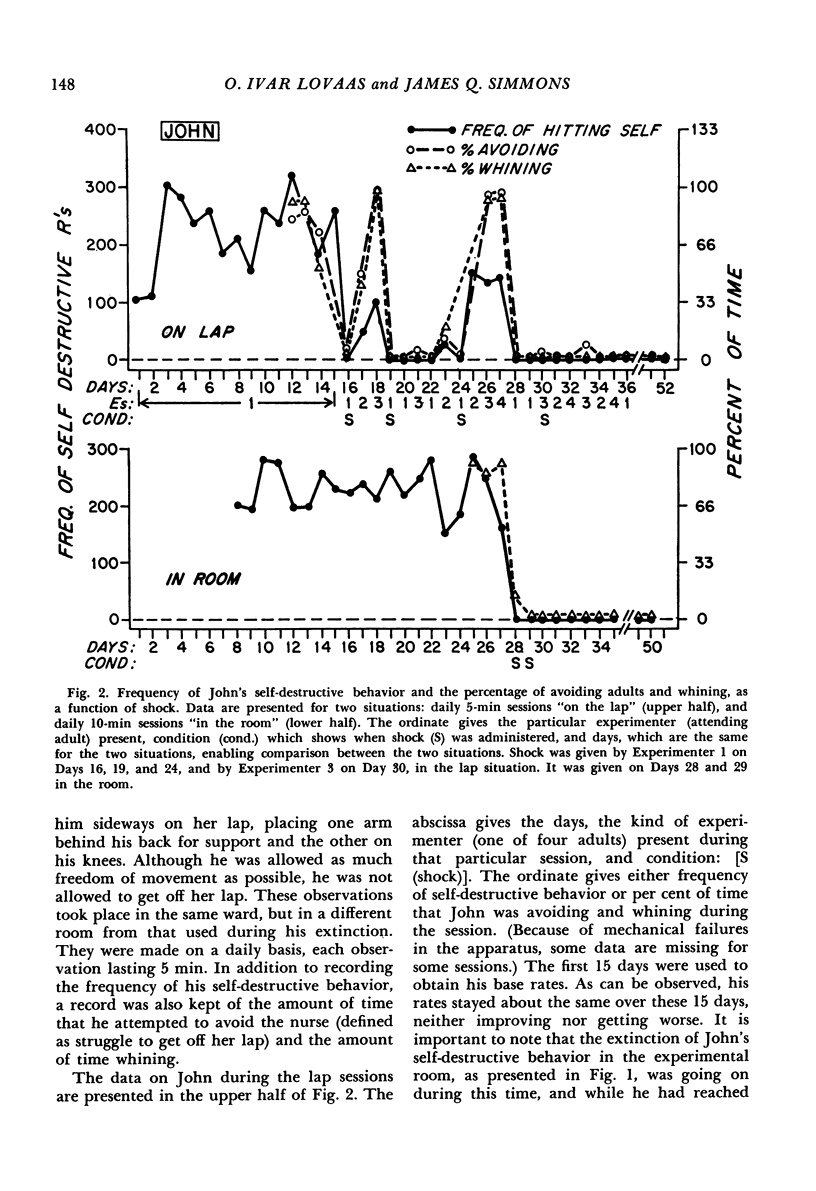
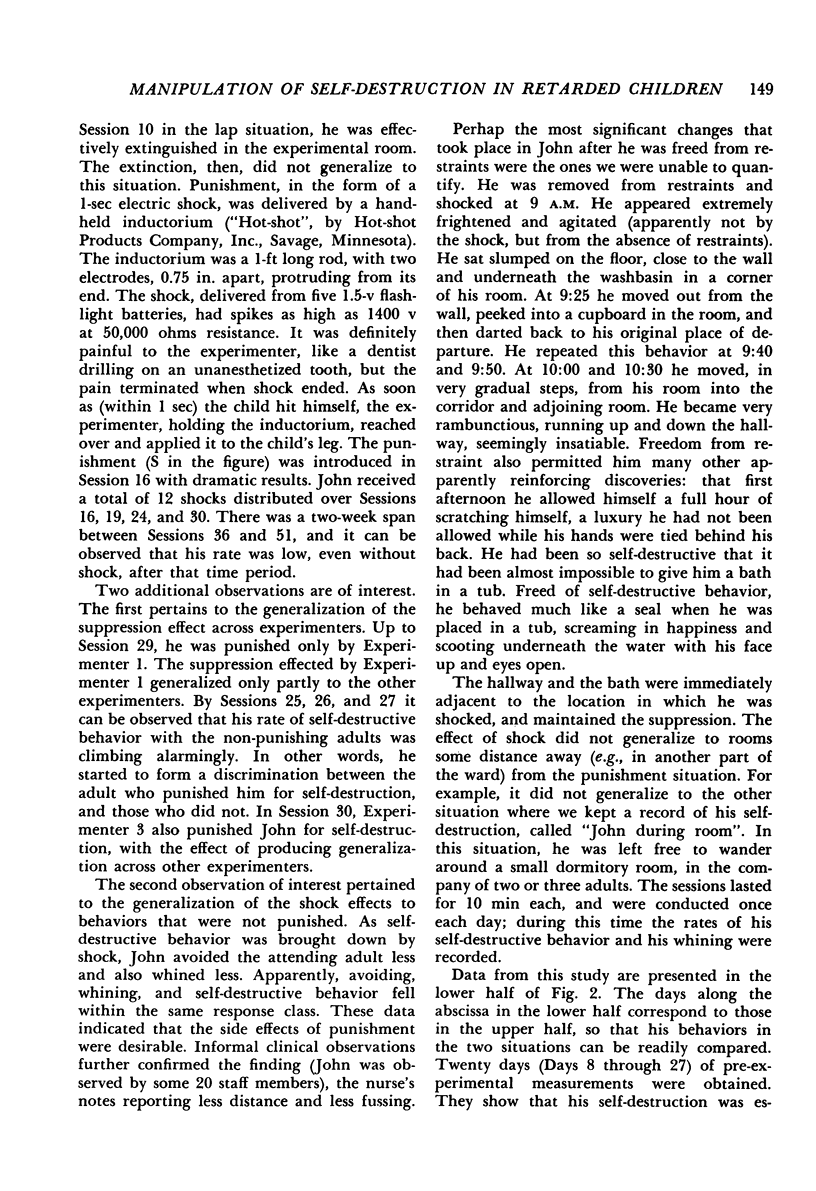
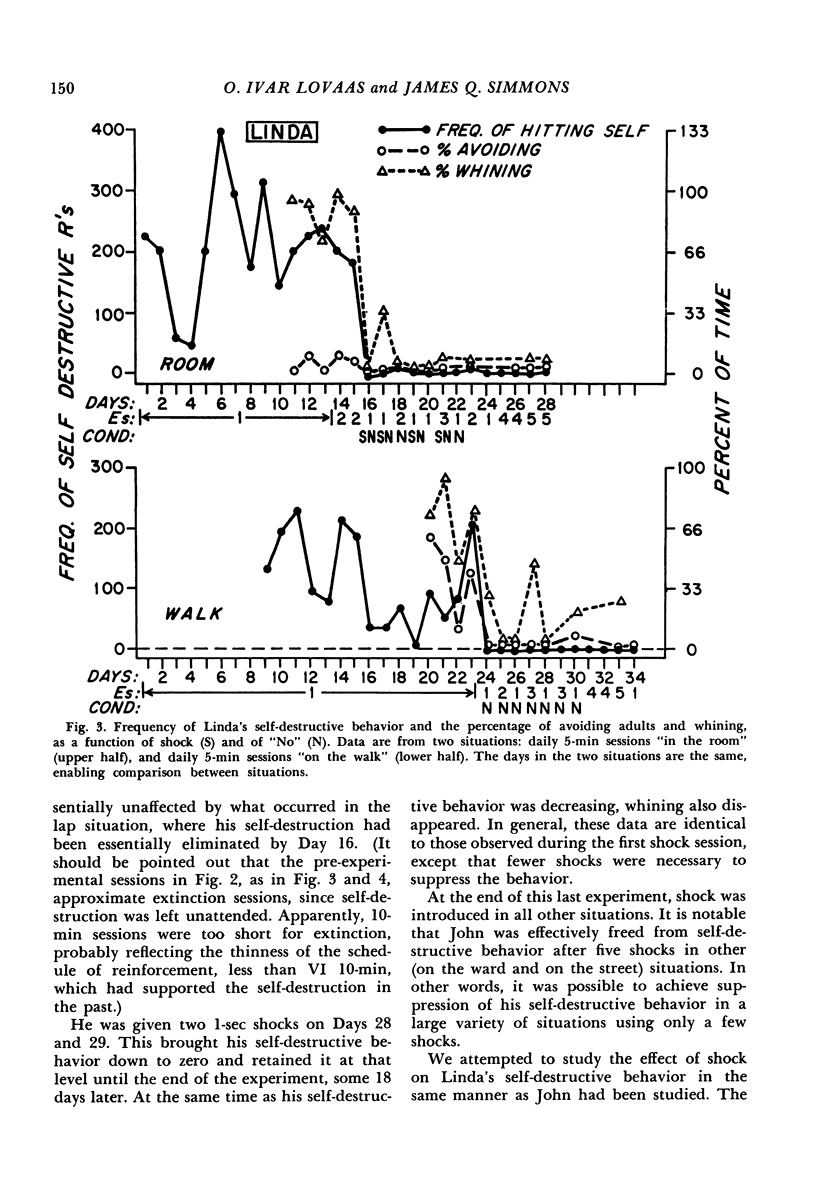
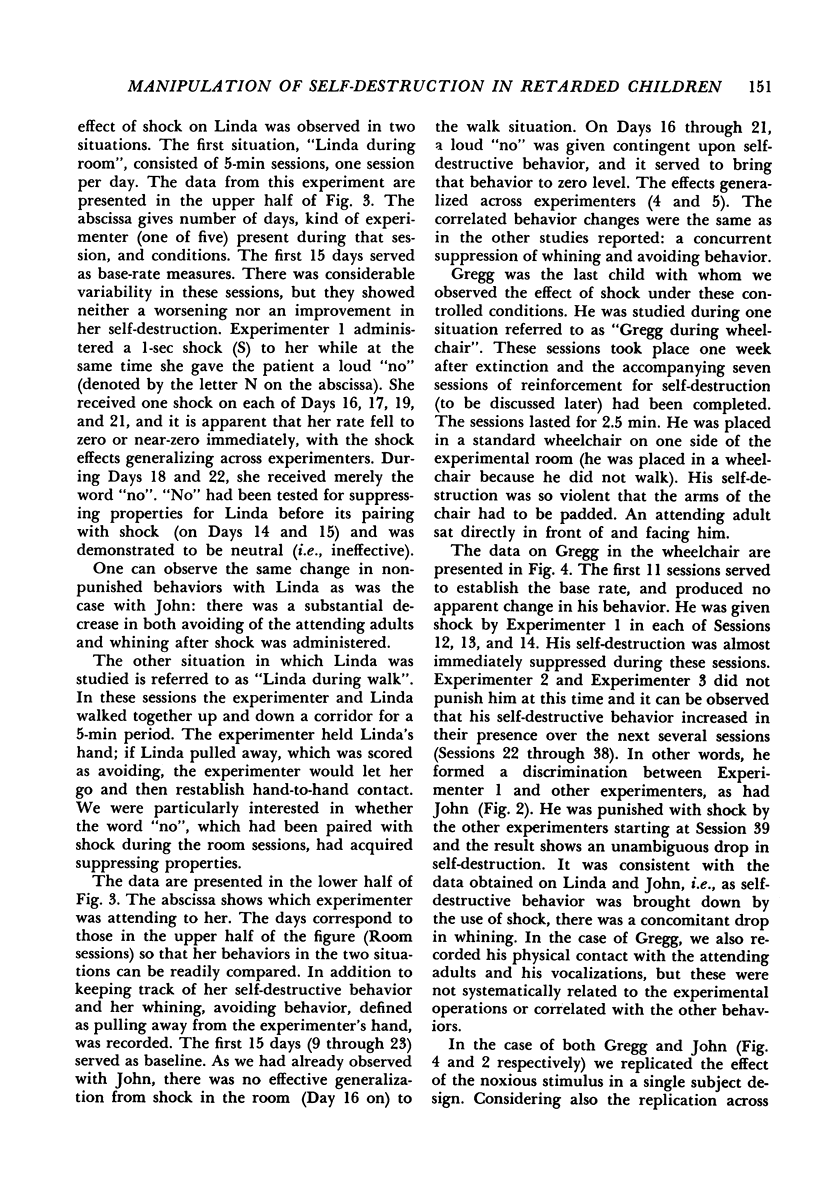
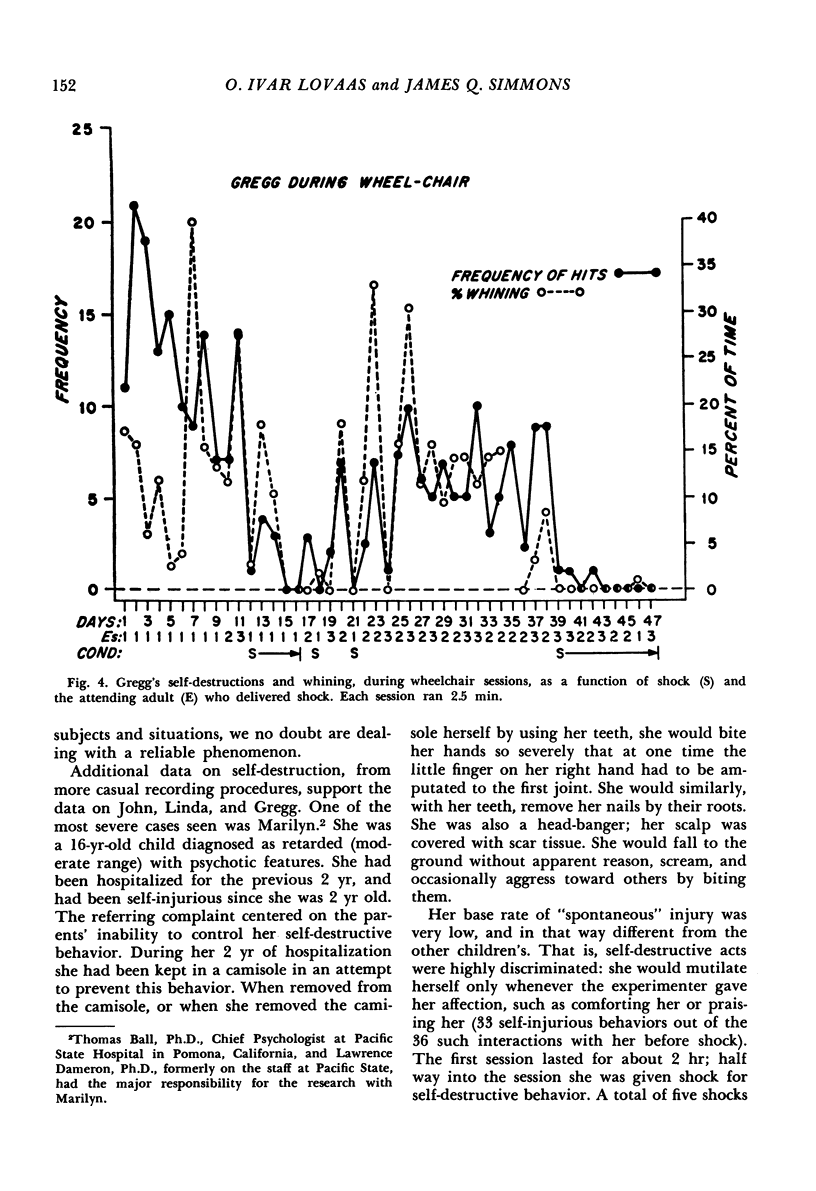
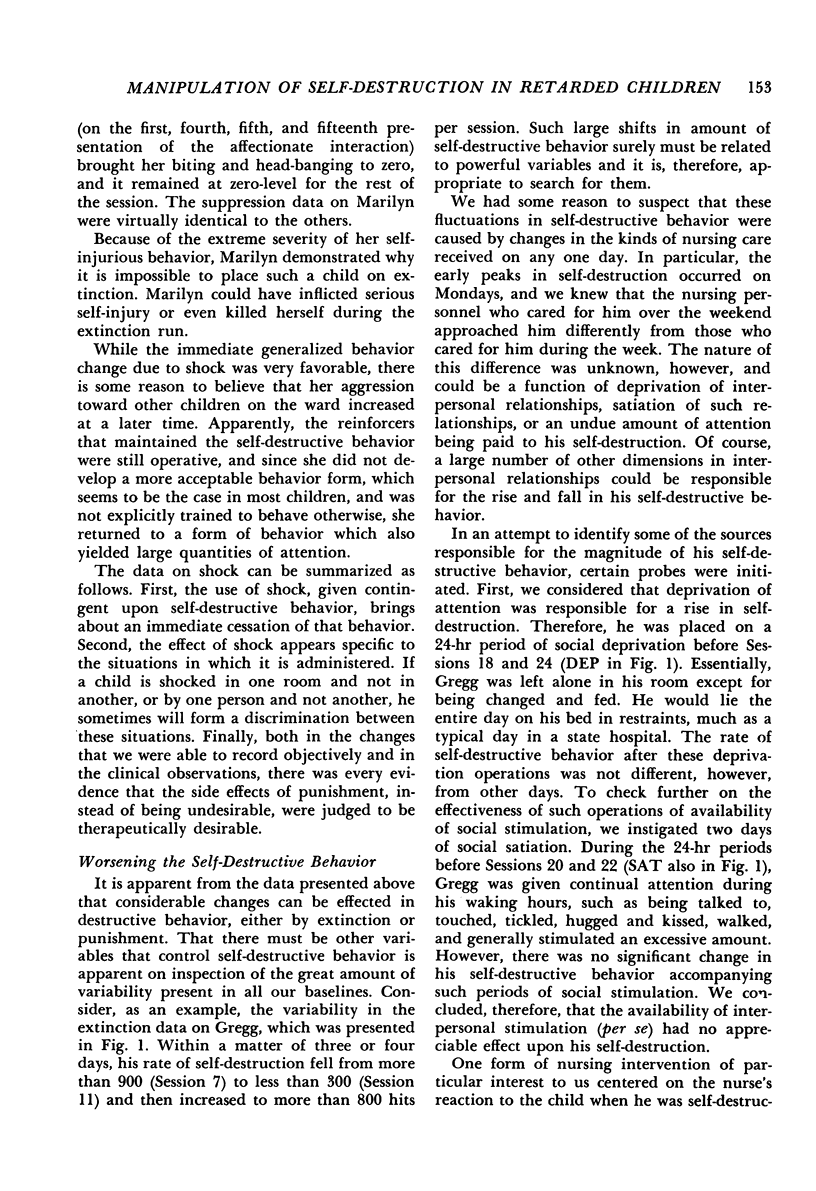
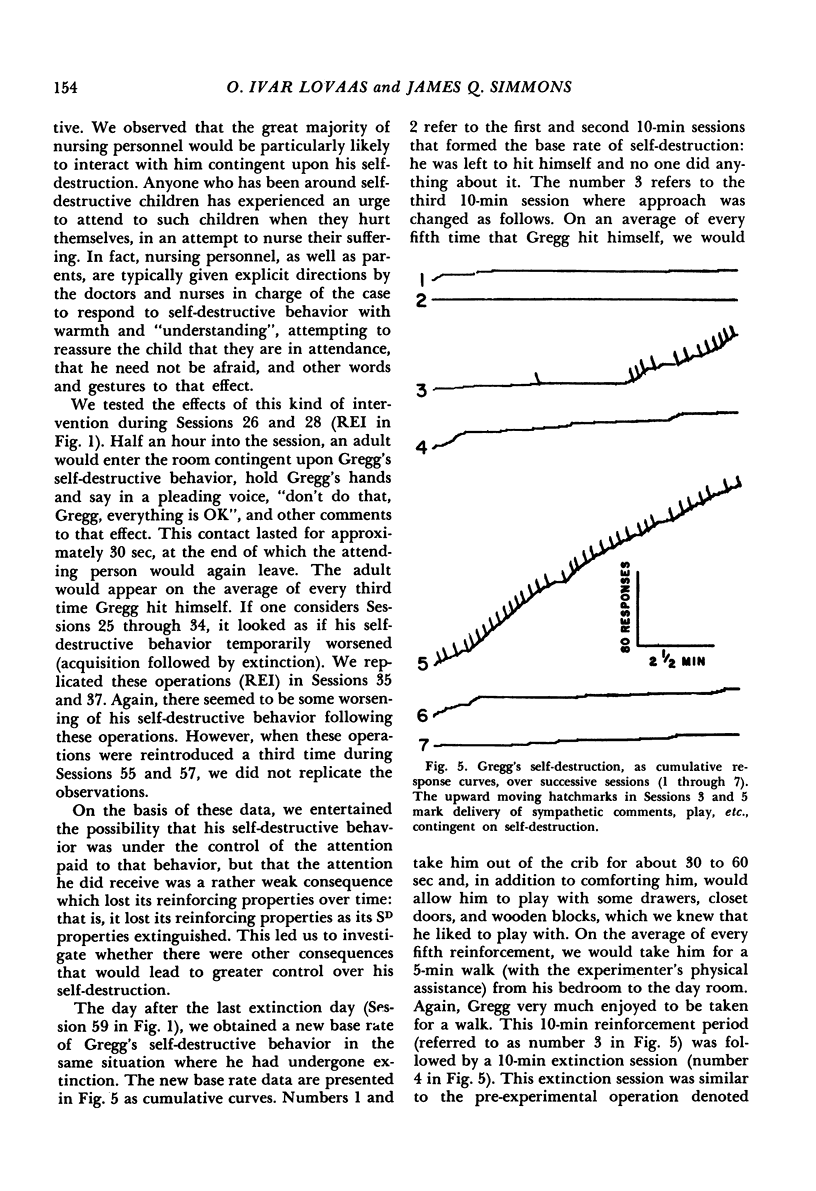
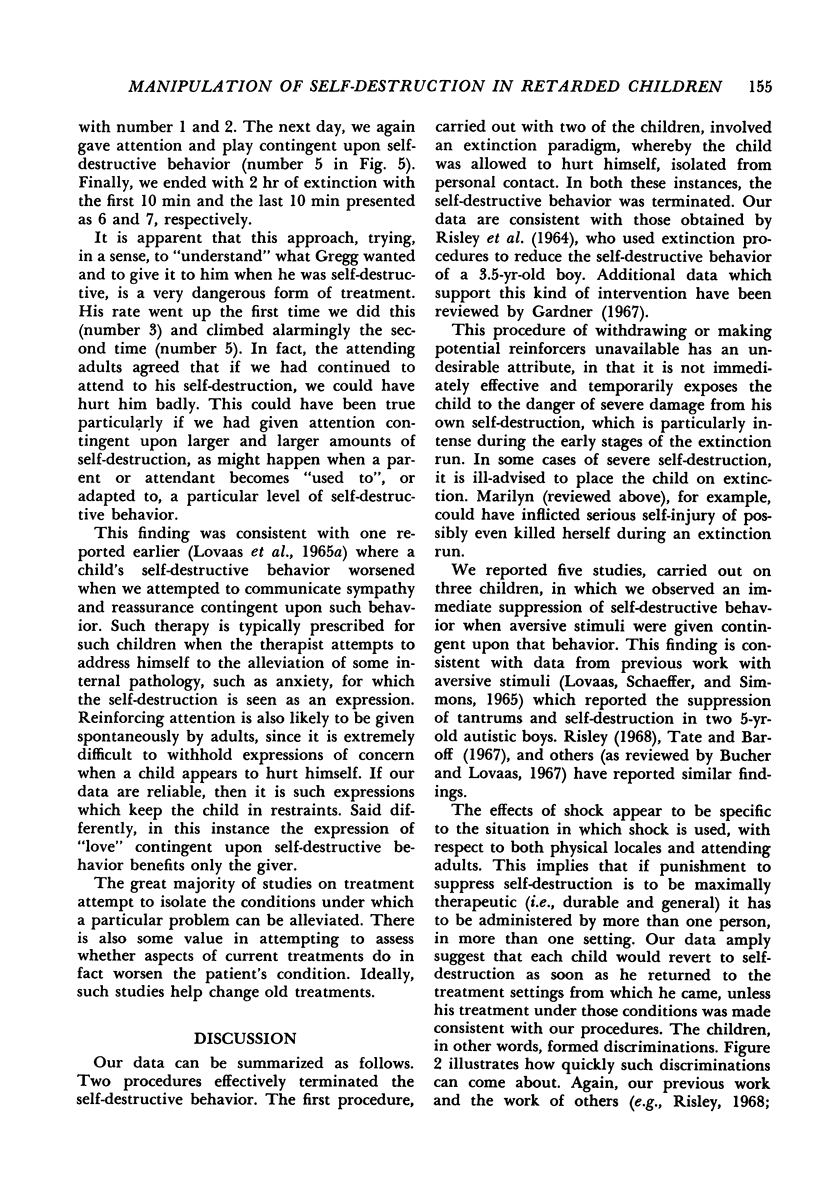
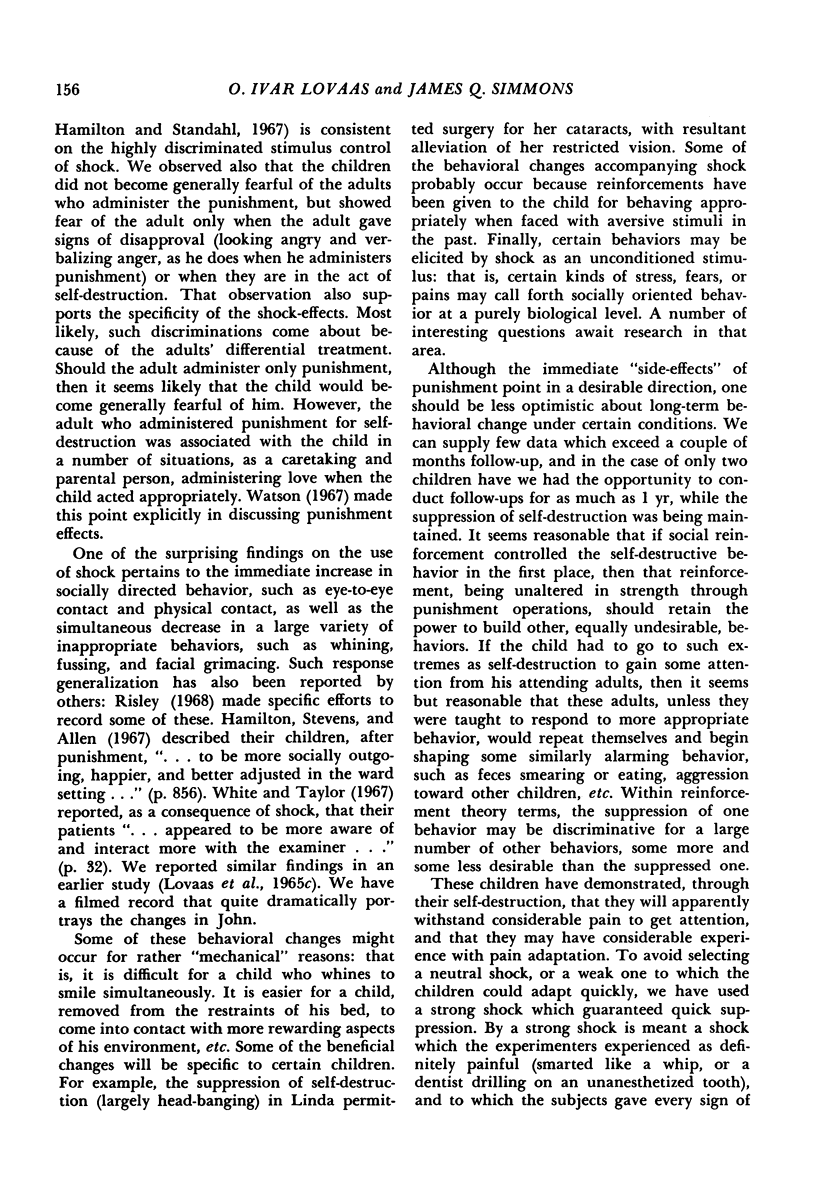
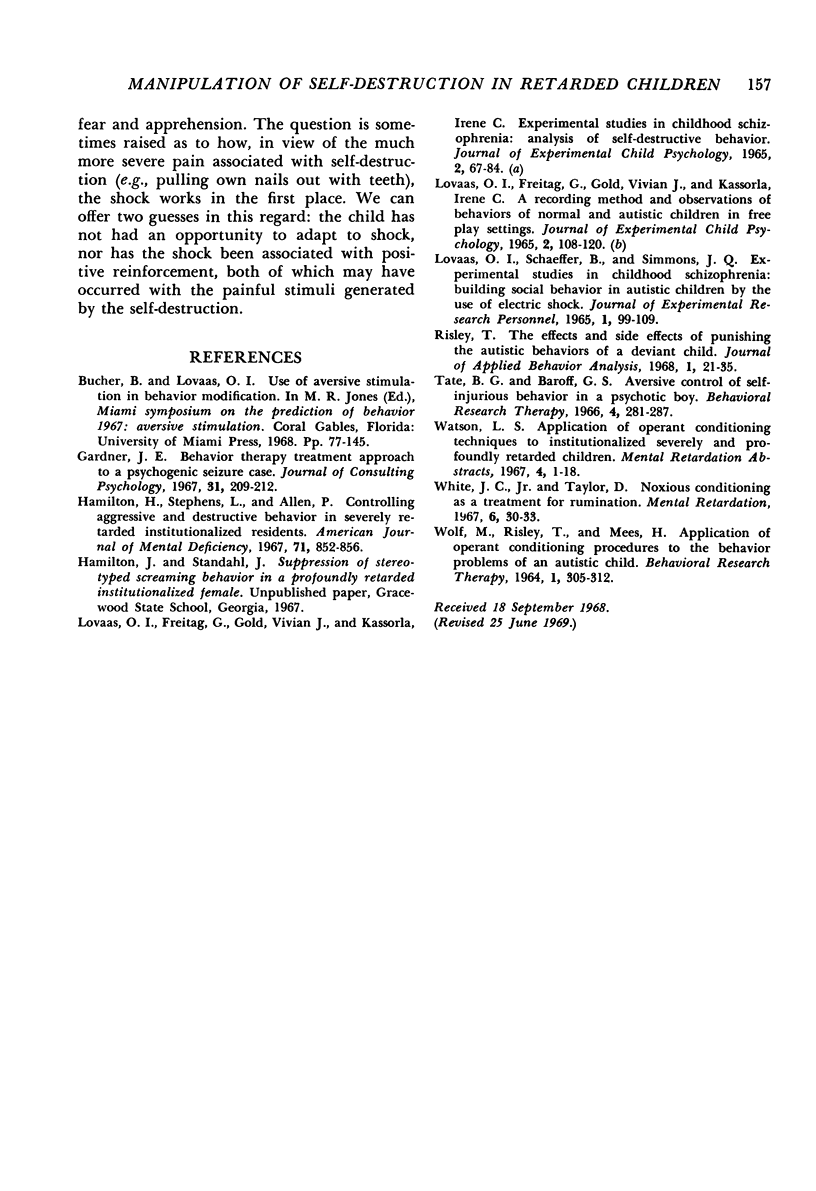
Selected References
These references are in PubMed. This may not be the complete list of references from this article.
- Gardner J. E. Behavior therapy treatment approach to a psychogenic seizure case. J Consult Psychol. 1967 Apr;31(2):209–212. doi: 10.1037/h0024446. [DOI] [PubMed] [Google Scholar]
- Risley T. R. The effects and side effects of punishing the autistic behaviors of a deviant child. J Appl Behav Anal. 1968 Spring;1(1):21–34. doi: 10.1901/jaba.1968.1-21. [DOI] [PMC free article] [PubMed] [Google Scholar]
- Tate B. G., Baroff G. S. Aversive control of self-injurious behavior in a psychotic boy. Behav Res Ther. 1966 Nov;4(4):281–287. doi: 10.1016/0005-7967(66)90024-6. [DOI] [PubMed] [Google Scholar]
- Watson L. S., Jr Application of operant conditioning techniques to institutionalized severely and profoundly retarded children. Ment Retard Abstr. 1967 Jan-Mar;4(1):1–18. [PubMed] [Google Scholar]
- White J. C., Jr, Taylor D. J. Noxious conditioning as a treatment for rumination. Ment Retard. 1967 Feb;5(1):30–33. [PubMed] [Google Scholar]


